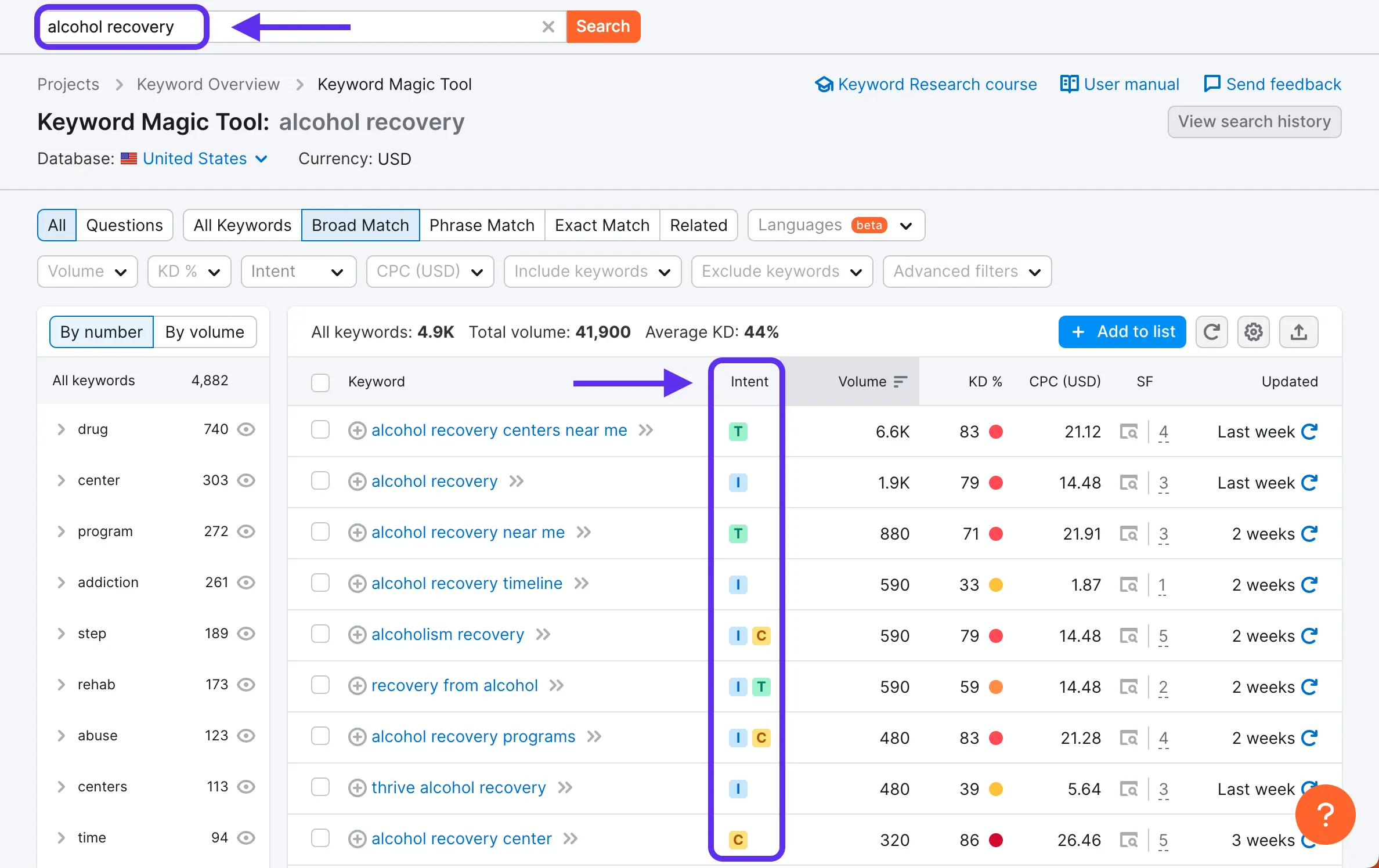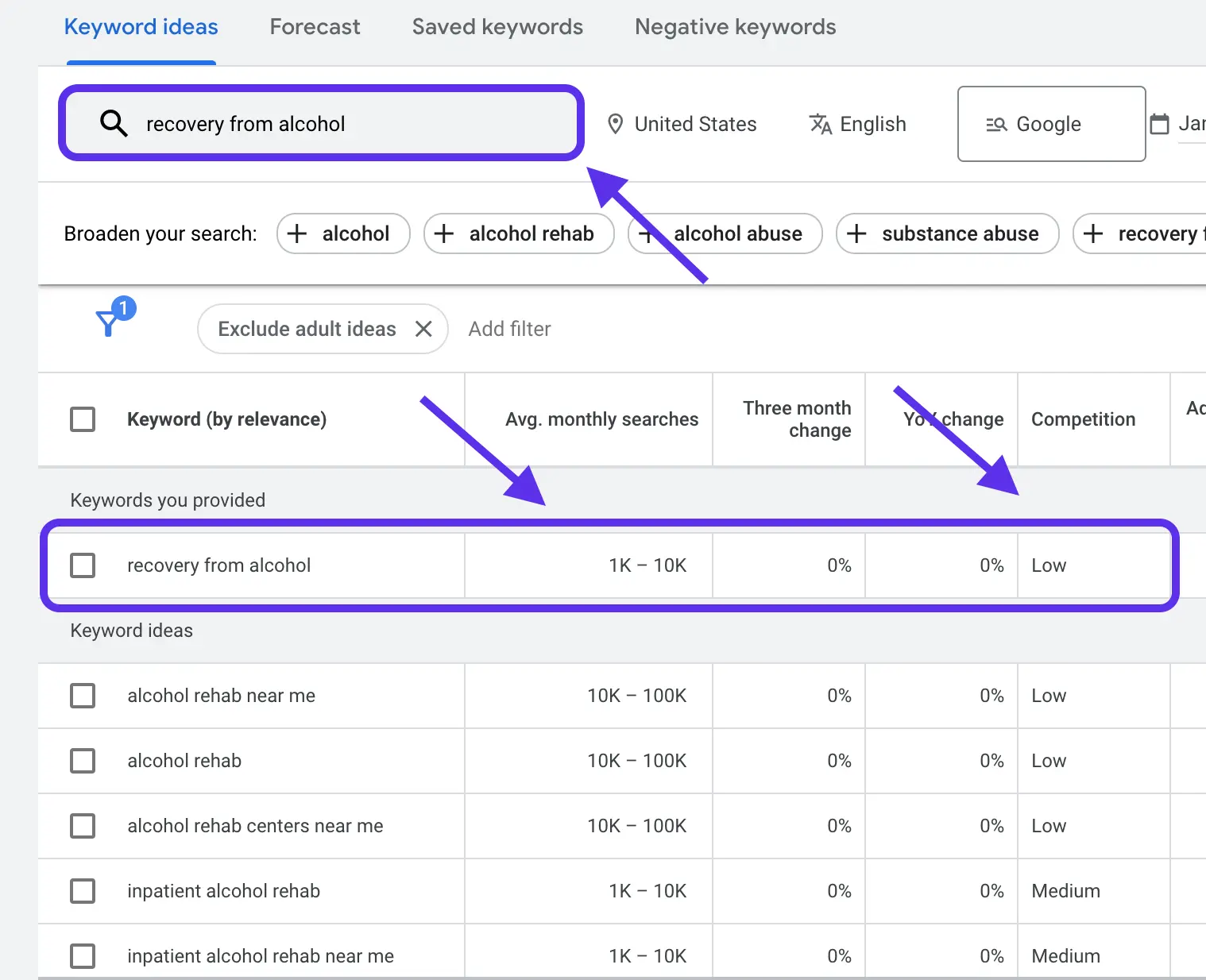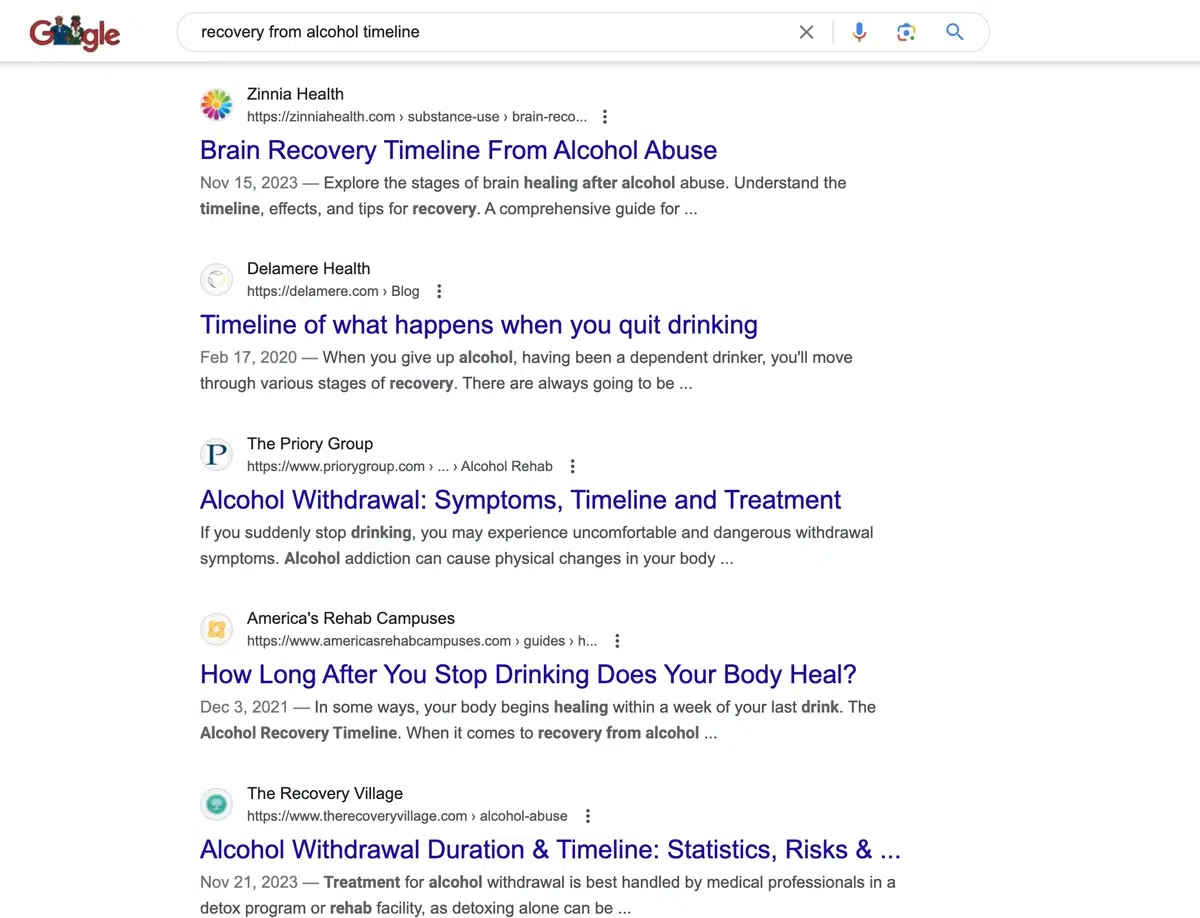What is keyword research?
Keyword research is the process of identifying and analyzing specific words and phrases that people use when searching for information, products, or services on search engines like Google.
By understanding the keywords that are relevant to your business, you can optimize your content and website to rank higher in search engine results pages (SERPs) and drive more relevant organic traffic.
In order to proficiently carry out keyword research, it is necessary to utilize various software tools in conjunction with SEO techniques. In this article, we will introduce you to a few of these tools and techniques, which you can use to analyze search volume, and competition, and identify long-tail keywords.
One of the major components of keyword research is identifying the intent behind each keyword, most commonly known as search intent.
Keywords are typically categorized into four distinct groups that identify the search intent:
- Informational
- Navigational
- Transactional
- Commercial
Most long-tail keywords fall into the informational category however that doesn’t mean they don’t provide value. We will cover this more in-depth later in the article.
Before we begin let’s get an understanding of each of these categories.
The 4 main categories of search intent
The first category is “Informational,” which encompasses searches that aim to gather knowledge or find answers to specific questions. These queries often start with words like “how to,” “what is,” or “why.”
The second category is “Navigational,” where users search for a particular website or web page. These queries usually involve brand or domain names and indicate that the user already knows what they are looking for.
The third category is “Transactional,” which involves searches with the intention to make a purchase or engage in a specific transaction. Keywords like “buy,” “order,” or “discount” are often indicative of transactional intent.
Lastly, the fourth category is “Commercial” which falls between informational and transactional intent. Users in this category are searching for information and comparing options before making a purchasing decision.
You can use semrush’s keyword magic tool to discover the intent of your keyword.

You can see that the keyword “alcohol recovery” is marked with the “I” (informational) icon. So, people searching this term are likely looking for useful information rather than pursuing services or products.
Having this general understanding of these categories can help you align your objectives with the right keyword.
Elements of keyword research
Now that you understand how to find the intent of the keyword, we can now look at the 4 main elements of keyword research to pay attention to.
This is where the concept of search intent comes in. Keyword relevance is the degree to which your content matches the search intent of the keyword or phrase.
Keyword authority refers to the level of trust and credibility that a specific keyword or phrase has in the eyes of search engines. To establish keyword authority, several elements are necessary, such as top-notch content, relevant backlinks, and active user engagement.
If the Google SERP’s (search engine results page) are loaded with highly authoritative sites like SAMHSA or NCBI you have a lower chance of ranking unless the content is far superior.
We always look at KD (keyword difficulty) when conducting keyword research. KD is a score out of 100 on how hard it will be to rank for that keyword. The higher the score the harder to rank.
Volume is the estimated monthly searches a keyword can get. Investigating this metric is an important step. Putting too much effort into a keyword that has to little or no volume can be a waste of time. Long-tail keywords generally have lower volume compared to main keywords. This is okay, we are just looking for a decent amount of volume say 200+ when it comes to long-tail keywords.
You can use Google Keyword Planner to discover and analyze some of these elements like difficulty and volume:

Simple process for discovering great keywords to target
For this example we will create a strategy for a “topical long-tail keyword” page. Simply put, topical long-tail keywords are phrases with lower search volume, niche, and low keyword difficulty.
I know what you are thinking, “Why would I want something with low search volume?” Valid question, essentially the plan is to create high volume by utilizing this strategy over and over. The accumulation of many long-tail keywords will add up to an overall high volume of traffic for the site but with the added benefit of being far easier to obtain.
So, how do we discover “topical long-tail keywords”? In the video below we will take a look at a simple process we can use to uncover these opportunities.
Continuing with the process we’ve done earlier in the article, we will start with “recovery from alcohol”. For this part you will need access to ahref’s
Aligning your long-tail keyword with search intent
Okay, now that we have a viable long-tail keyword (recovery from alcohol timeline) we need to ensure we align our content with the search intent.
First, we can look at the SERP results within ahrefs or we can perform the search ourselves.
Head over to google, enter “recovery from alcohol timeline” and click search.

Now that you have the SERP page pulled up you can analyze the titles of each page to get an idea of the search intent. In this case, we can see that the content that Google is prioritizing is primarily informational.
Now click into a few of these articles and analyze the content. Find commonalities and areas of missing information. Use this analysis to produce content that offers more information, clearer readability, and better user experience.
Get help growing your traffic with long-tail keywords
The pursuit of a long-tail keyword strategy is an excellent approach to increase the flow of organic visitors to your website. By consistently applying this principle, you can amass a substantial amount of organic traffic to your site. Ultimately, this strategy will enable you to acquire additional backlinks, raise your domain authority, and enhance your ranking for more challenging keywords.
Collaborate with our team to help implement a long-tail keyword strategy for your next drug rehab SEO efforts.





